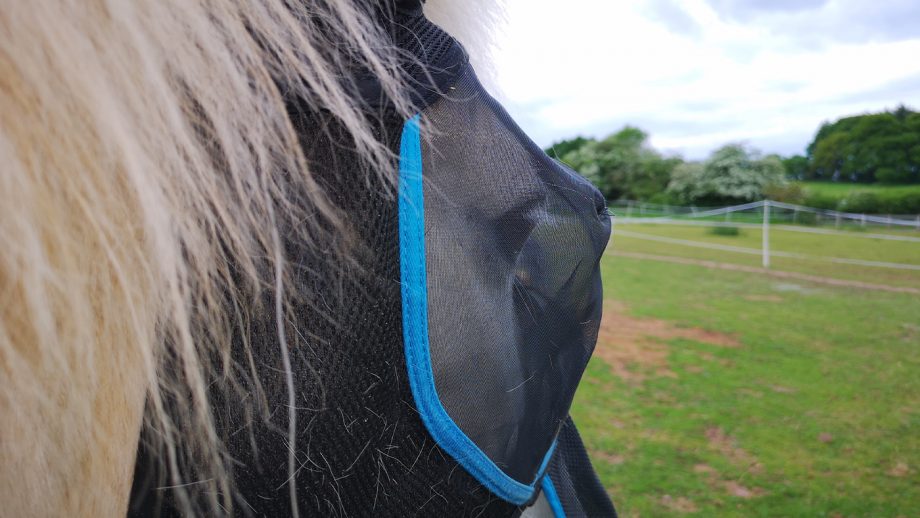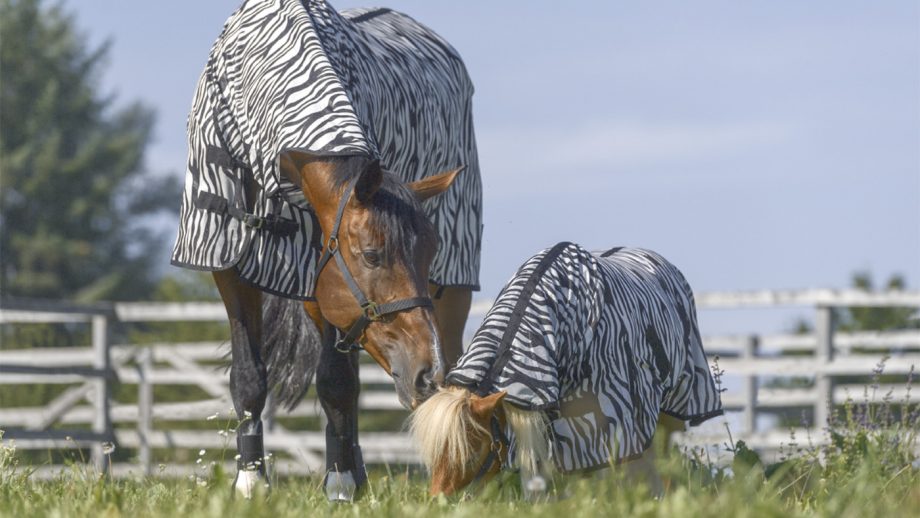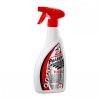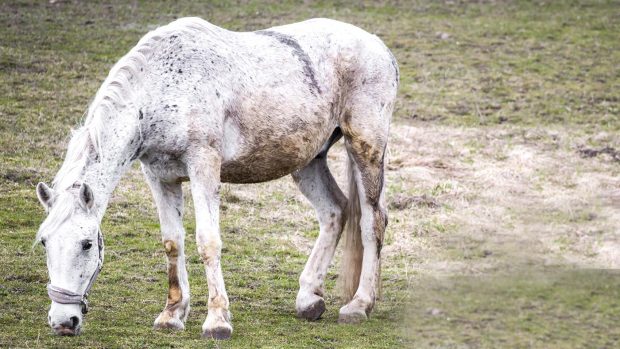If you’ve spent any time in the great outdoors this spring (and if you’re horsey, you certainly have) you might have asked yourself ‘are midges worse this year?’ They might be tiny, but it’s as hard to ignore these buzzing, biting beasties as it is horseflies. It doesn’t take much exposure to their mischief to have you wondering whether there are more midges about than usual this year.
But is there any truth to the notion that midge activity is on the up in 2024? We spoke to Dr Alison Blackwell (MSc, PhD), who spent four years conducting post-doctorate midge and insect behaviour research. Dr Blackwell continued to study midges and other insects for a decade and went on to form APS Biocontrol, the company that produces Smidge, an insect repellent.
When asked what inspired her career in insect behaviour research, Dr Blackwell told H&H: “I don’t really know! By chance I ended up working on midges in Scotland and they’re an interesting insect in that they are so successful in a relatively inhospitable habitat. They have lots of great survival mechanisms. They don’t transmit any human diseases in the UK, but this year there is Bluetongue virus (BTV) in some areas. This affects sheep and cattle and is midge-transmitted, so they are important to consider.”
Midge activity: are midges worse this year?
A part-indicator in midge activity according to Dr Blackwell is a boost in customer purchases.
“It’s got really busy for us in the last week or so sales-wise. I think it’s because of that warm spell we had, which was preceded by wet weather. These are perfect conditions for midges emerging.
“Last year, we had peak populations for the first half of the summer in Scotland and then there was a really dry spell. The second generation of midges was much lower than you’d expect because of that. This was on a localised scale, though.” Dr Blackwell continued to explain that midge numbers can vary significantly depending on your local weather conditions. “In contrast, in parts of the north west of Scotland where it’s more damp, the midges keep going in large numbers.”
All in all, Dr Blackwell believes there is some truth to it – ideal midge conditions have increased midge activity, so people are justified to speculate ‘are midges worse this year?’. The good news is, not all of them are out for blood.
“Also, you’ve got lots of chironomids, non-biting midges,” continues Dr Blackwell. “These the kinds of insects you see swarming over streams. They literally emerge for 24 hours, mate and die off. There’s truth to it, but not all the midges are biting, I don’t think. There are other species around too.”

TriTec 14 | Viovet
This H&H-approved insecticide spray is effective against Scottish midges. It can last up to 14 days on your stables and kit.
Why are midges important?
It might be tough to swallow (especially if you’ve ever experienced having one fly directly into your mouth), but midges are an essential part of life, confirms Dr Blackwell.
“They’re part of the ecosystem, part of the diet of bats and small birds,” she says. “The juvenile larva stages are about four to five centimetres below the soil surface and are part of decomposition in the food chain. They digest decaying organic matter, so they are important.”
Which months are the worst for midges?
According to Dr Blackwell, midges spend the winter in their larval stages, hibernating under the soil. But when the days get longer and warmer, they spring into action. “That’s when they can turn into adults and emerge,” she tells H&H.
It’s at this stage that wet spring weather can be an advantage to the midge. “If it’s damp, it’s easier for them to get out of the soil.
“Most years, you have your first big midge emergence in the first week of June and then the adult females lay their eggs. Those eggs develop into a second batch of midges about six weeks later. So, about mid-July, you get a second peak.
“The second peak females mate and their eggs will normally develop all the way through to the final larval stage. Often by that time, it’s September, and they go into their hibernation state. However, if you get a warm autumn, you sometimes get a third peak of midges.”
That’s not to say that midges are a permanent summer fixture. When we ask: ‘are midges worse this year’, we perhaps should be wondering if they’ve simply got off to a good start. As we move into warmer months a heatwave could send them packing. “They don’t like very hot, dry weather,” continues Dr Blackwell, “and they don’t like windy weather. They’re tiny; they only have a 2mm wingspan, so they dehydrate really quickly and they can’t cope with much of a breeze.”
Horse owners in Scotland can make use of Dr Blackwell’s sophisticated midge prediction tool.
“We run the online Scottish midge forecast, we’re seeing fours and fives on there with people reporting more midges.
“It’s a bit like the pollen forecast, you click on any town in Scotland and get your five-day forecast.”

Smidge Fly Repellent | Amazon
Water- and sweat-resistant and lasts on adults and children for up to eight hours.
How to keep midges away from horses
The obvious answer is using the one of the best fly sprays or best fly gels on your horse. Dr Blackwell tells us the active ingredient in Smidge is picaridin, and though Smidge isn’t licensed for animal use, riders can apply this to themselves. Unlike DEET, a common ingredient in equine fly sprays, picaridin doesn’t have a destructive effect on materials such as plastic and nylon, so it’s safe to use around your equipment, such as your best fly rugs and fly masks.
“Other things to use are CO2-producing traps,” she continues. “These traps pretend they’re something the midge wants to bite. They put out an attractive scent and the midges get caught.
“Good hygiene on yards and farms will help, so managing your dung heap well and keeping your stable as clean as you can.
“If you horse is in, create some kind of air current if you can. Midges don’t fly in a high breeze, and I know people who have put fans up to turn the midges away from getting into stabled areas.”
In the past, Dr Blackwell has been involved in a research project into a sweet itch vaccine development. While no vaccine was produced, some vets in the UK recommend vaccinating sweet itch-prone equines with a medication that was originally developed to combat ringworm, but appears to reduce the signs of sweet itch.

WeatherBeeta ComFiTec Deluxe Fine Mesh Fly Mask | Amazon
Made with a really fine mesh, this H&H approved fly mask is perfect for keeping midges off your horse’s face.

NAF Off DEET Power Performance Gel | Amazon
This DEET-based concentrated gel repels flies and insects and is ideal if your horse isn’t a fan of spray.
What does the future hold for midges?
While midge numbers are affected by yearly fluctuations in weather, they’re definitely here to stay – and our climate may become more midge-friendly.
“Midge numbers largely depend on the conditions each year,” Dr Blackwell tells us. “That said, generally with climate change conditions, warmer, wetter weather is probably going to extend the season of the midges a little bit more. We might see this third generation of midges more frequently in September/October time.
“It probably won’t extend their habitat, because they’re limited to where they can breed and where the soil is preferable to them. But the general thinking is midges could be around for a bit longer [each year].”
You may also be interested in…

Had enough of annoying flies? We’ve tested some fly sprays to find which really work

6 handy fly gels and creams we’ve put to the test

Fly masks to protect your horse

Fly protection on a budget: 6 fly rugs under £50

13 fly rugs to suit every shape, need and budget

Subscribe to Horse & Hound magazine today – and enjoy unlimited website access all year round
Horse & Hound magazine, out every Thursday, is packed with all the latest news and reports, as well as interviews, specials, nostalgia, vet and training advice. Find how you can enjoy the magazine delivered to your door every week, plus options to upgrade your subscription to access our online service that brings you breaking news and reports as well as other benefits.






